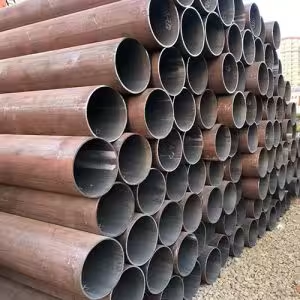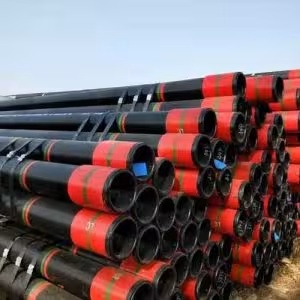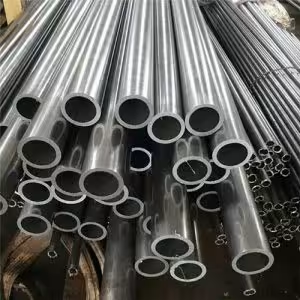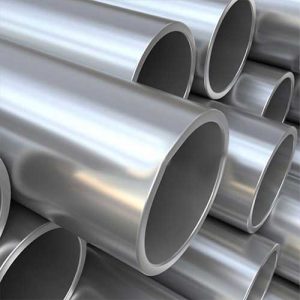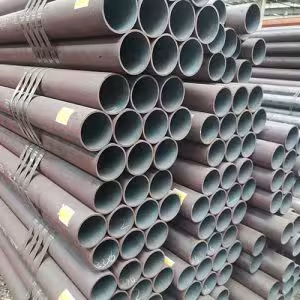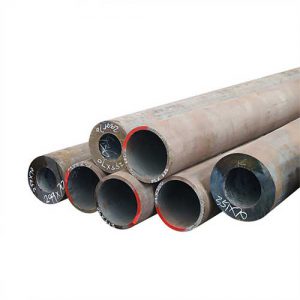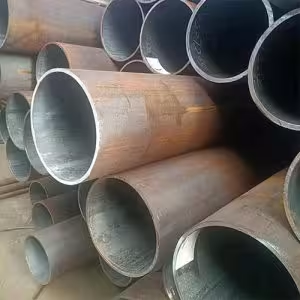Welcome to My Blog!
Before we dive into the content, I’d love for you to join me on my social media platforms where I share more insights, engage with the community, and post updates. Here’s how you can connect with me:
Facebook:https://www.facebook.com/profile.php?id=61565500692293
Now, let’s get started on our journey together. I hope you find the content here insightful, engaging, and valuable.
Introduction
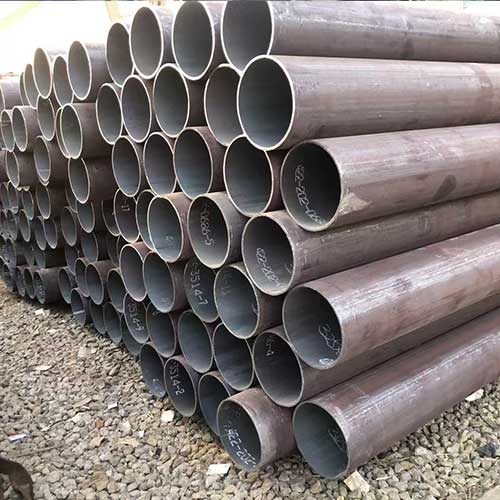
The world of steel pipes is vast, with numerous types and grades designed for specific applications. Carbon seamless steel pipes stand out for their uniformity and strength, making them ideal for applications where reliability and performance are paramount. This guide will explore the characteristics of carbon seamless steel pipes and their role in modern industry.
Understanding Carbon Seamless Steel Pipes
To fully appreciate the benefits of carbon seamless steel pipes, it’s important to understand their composition and manufacturing process.
Composition of Carbon Seamless Steel Pipes
Carbon seamless steel pipes are made from carbon steel, an alloy of iron and carbon. The carbon content in these pipes typically ranges from 0.1% to 1.5%, which provides the necessary strength and hardness for various applications.
Manufacturing Process of Carbon Seamless Pipes
The manufacturing process of carbon seamless steel pipes involves several steps:
- Heating: The carbon steel billet is heated to a high temperature to make it malleable.
- Piercing: The heated billet is pierced to create a hollow tube.
- Sizing: The tube is then shaped and sized to the desired dimensions.
- Cooling: The formed pipe is cooled, which hardens the steel and sets its final shape.
- Inspection and Testing: The pipes undergo rigorous inspection and testing to ensure they meet quality standards.
Properties and Benefits of Carbon Seamless Steel Pipes
Carbon seamless steel pipes offer a range of properties that make them suitable for a variety of applications.
High Strength and Durability
The carbon content in these pipes provides high tensile strength and durability, making them resistant to deformation and wear.
Corrosion Resistance
While not as resistant as stainless steel, carbon seamless steel pipes can be protected with coatings or treatments to enhance their resistance to corrosion.
Pressure Resistance
These pipes can withstand high internal pressures, making them ideal for applications such as oil and gas transmission.
Weldability
Carbon seamless steel pipes can be easily welded, which is beneficial for construction and repair work.
Applications of Carbon Seamless Steel Pipes
Carbon seamless steel pipes are used in a variety of industries and applications due to their strength and reliability.
Oil and Gas Industry
These pipes are used for transporting oil, natural gas, and other fluids over long distances.
Construction
In construction, carbon seamless steel pipes are used for structural support and as conduits for utilities.
Automotive Industry
Carbon seamless steel pipes are used in the manufacturing of automotive components, such as exhaust systems.
Mechanical Engineering
These pipes are used in various mechanical engineering applications, including the manufacturing of machinery and equipment.
A Comparative Analysis of Carbon Seamless Steel Pipes
To assist in understanding the value of carbon seamless steel pipes, here’s a comparative analysis of their features:
Carbon Seamless Steel Pipe Feature Comparison Table
| Feature | Description | Importance |
|---|---|---|
| Tensile Strength | The ability of the pipe to withstand stretching | Essential for high-pressure applications |
| Yield Strength | The point at which the pipe begins to deform permanently | Important for structural integrity |
| Corrosion Resistance | The ability of the pipe to resist corrosion | Crucial for longevity and maintenance costs |
| Pressure Resistance | The ability of the pipe to withstand internal pressure | Vital for pipelines and pressure systems |
| Weldability | The ease with which the pipe can be joined | Important for construction and repair |
This table provides a snapshot of how carbon seamless steel pipes compare to other materials in terms of key properties that are often considered in material selection for various applications.
Making the Right Choice
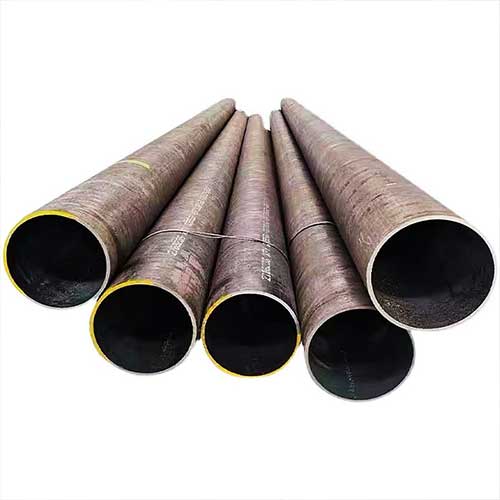
When selecting carbon seamless steel pipes for your project, consider the specific requirements and constraints.
Project Requirements
Consider the specific requirements of your project, such as the type of fluid being transported, pressure and temperature conditions, and resistance to corrosion.
Budget Constraints
Carbon seamless steel pipes may have a higher initial cost, but their long-term durability and low maintenance requirements can result in cost savings over time.
Long-Term Performance
Think about the long-term performance of the pipes, including their resistance to corrosion, their maintenance requirements, and their expected service life.
Sustainability and Environmental Impact
Consider the environmental impact of the pipes, including their recyclability and the energy required for their production and maintenance.
Conclusion
Carbon seamless steel pipes offer a range of benefits that make them an excellent choice for many industrial and construction applications. Their strength, durability, and resistance to corrosion position them as a preferred solution for transporting fluids and gases under pressure. By understanding the properties and applications of carbon seamless steel pipes, engineers and contractors can make informed decisions that will enhance the efficiency, safety, and sustainability of their projects.
FAQ
Q: What are the main benefits of using carbon seamless steel pipes?
A: The main benefits include high strength and durability, corrosion resistance, pressure resistance, and weldability.
Q: How do carbon seamless steel pipes compare to other types of steel pipes in terms of strength?
A: Carbon seamless steel pipes offer high tensile strength and yield strength, making them suitable for high-pressure applications.
Q: Can carbon seamless steel pipes be used in outdoor applications where corrosion resistance is important?
A: While carbon seamless steel pipes are not as resistant to corrosion as stainless steel, they can be coated or treated to provide protection against rust, making them suitable for outdoor use.
Q: Is it difficult to weld carbon seamless steel pipes?
A: No, carbon seamless steel pipes are relatively easy to weld due to their carbon content, which contributes to their good weldability.
Q: What are the typical applications of carbon seamless steel pipes in the construction industry?
A: In the construction industry, carbon seamless steel pipes are used for structural support, as conduits for utilities, and in the manufacturing of building components.

